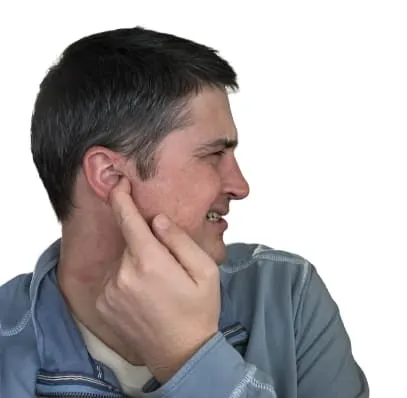Hearing aids can dramatically improve your auditory capabilities, but, like any intervention, they can also come with potential side effects. Recognizing and effectively managing these side effects can help enhance your overall hearing experience. This article explores common side effects associated with hearing aids and provides tips to minimize their impact.
1. The Occlusion Effect: Alteration in Your Voice
The occlusion effect refers to the common concern of hearing your own voice as if it’s echoing, hollow, or amplified like a microphone when wearing hearing aids. We’ve discussed this effect extensively in our comprehensive article on this topic.
In the initial weeks of using hearing aids, adjusting to your altered voice can be challenging. Your brain requires time to adapt to these new sounds and establish a “new normal”. Various strategies can make this adjustment period more comfortable, such as:
- Using open and natural ear canal pieces
- Adjusting low-frequency settings
- Exploring different types of hearing aids
You can find detailed information on these techniques in our dedicated article on managing the occlusion effect.
2. Feeling of Ear Fullness or Plugged Sensation
Using hearing aids can initially create a sensation of fullness or a plugged-up feeling in your ears, much like when you first wear glasses. However, as you continue using them, your brain gradually accepts this new experience, and your awareness of the devices decreases. The strategies mentioned for managing the occlusion effect can also help reduce this fullness sensation. Opting for open domes or vents may provide relief.
3. Skin Irritation
Discomfort or skin irritation caused by hearing aids should be addressed promptly to prevent exacerbation. Comfort is fundamental to your hearing aid experience, and certain adjustments can be made to improve it. For instance:
- Trying different dome sizes or wire lengths if you use behind-the-ear devices.
- If you’re using in-the-ear hearing aids, your audiologist can adjust the fit or create a new impression to remake the device.
Remember, it’s essential to communicate any discomfort to your audiologist to find the best solution.
4. Hearing Aids Sound Tinny

Patients often report that hearing aids can make sounds seem “tinny,” particularly high-frequency sounds, which can be annoying. This effect arises as hearing aids amplify these high frequencies, essential for understanding speech. While adjusting the volume settings can alleviate this “tinny” perception, it might compromise speech sounds.
A gradual adjustment process can be helpful if high-frequency sounds are bothersome. Start by lowering the volume and allowing yourself to acclimate to the softer sounds. Then, gradually increase the volume, repeating this process until reaching a comfortable level. Professional hearing aids often have an automatic adaptation feature that gradually adjusts amplification over time. For self-fit or over-the-counter hearing aids, manual adjustments might be necessary.
5. Feedback from Hearing Aids
Feedback from hearing aids, often characterized by whistling or similar sounds, can be bothersome. However, technological advancements have significantly improved this issue. If you still experience feedback, our detailed article on preventing hearing aid whistling provides valuable insights to help you.
6. Itchy Ears

Sometimes, the presence of hearing aids in your ear canal can trigger itchiness due to sensitive nerve stimulation. This side effect can usually be resolved by adjusting the hearing aids or using ear lubricants. Our comprehensive article on hearing aids and itchy ears offers further information on causes, prevention, and treatment.
7. Headaches
Headaches caused by hearing aids are rare. However, if you experience them, it may indicate a problem that requires attention. Potential causes may include excessively loud volume settings or an ill-fitting device. Be sure to discuss this problem with your audiologist and consult your primary care provider to rule out any other underlying causes.

